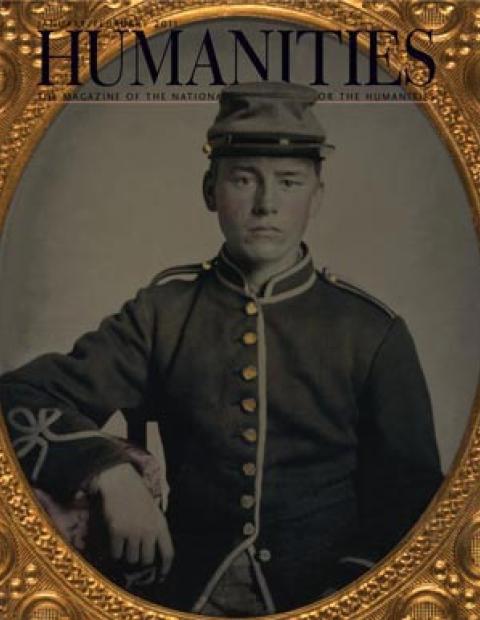Just like Odysseus, modern soldiers can have long journeys recovering from painful injuries and memories. But their healers, too, can suffer burnout and exhaustion. At After Shock: Humanities Perspectives on Trauma, a conference organized by the Literature & Medicine program of the Maine Humanities Council, more than 150 health professionals, writers, artists, academics, state humanities staff, veterans, and family members gathered in Washington, D.C., to explore how literature, theater, and writing can be a bridge between caregivers and patients of trauma.
Through the Literature & Medicine program, created in 1997, some two thousand physicians, nurses, receptionists, therapists, lab techs, and administrators have read and discussed literature together in small groups in twenty-five states and Argentina. Among the outcomes for participants: more satisfying communication with patients and colleagues, greater understanding of how diverse cultural and socioeconomic perspectives affect patient care, and less burnout.
At the conference in November, war’s aftermath was a dominant theme. In a keynote address, psychiatrist Jonathan Shay told his own story of writing the acclaimed Achilles in Vietnam: Combat Trauma and the Undoing of Character. While working with veterans, Shay heard echoes of the pain suffered by soldiers in Homer’s Iliad. Over and over, Shay heard his patients say, “I died in Vietnam (or Iraq, or Afghanistan),” or “It should have been me,” when a best buddy was killed. Achilles offered similar laments, Shay said, after his closest comrade, Patroklos, was slain.
Trauma, Shay suggested, comes not so much from war’s violence but from a “moral injury” made up of three key elements: betrayal of what’s right, by someone who holds legitimate authority, in a high-stakes situation.
Classical literature, participants learned, is an ideal vehicle for exploring deep psychological and emotional scars. Unlike contemporary works, which may be fraught with ongoing political division, the classics allow readers to focus on universal themes.
Roberta Stewart, a Dartmouth College professor of classics, said, “We need to engage with our veterans as thinking human beings, not just as patients.” Accompanying Stewart was a Vietnam vet who had taken classes offered by Stewart at his local veterans’ center. Alan Oakman, who had never before read a classical work, reflected on what he learned from the Odyssey.
“Odysseus’ ten-year journey is similar to my own long journey of coming home,” he said. “Odysseus told lies about himself—I connected that to how I felt like a liability. You couldn’t talk about [being a Vietnam vet] or you wouldn’t get that job you wanted.” And just as Odysseus was tempted by the Lotus Eaters, Oakman said he succumbed to drinking and drugs when he returned, before becoming sober a decade later.
Other workshops ranged from storytelling techniques to caregiver burnout, cinematic representations of combat, developing empathy in young medical staff, and the special challenges faced by women warriors, all through the lens of narration and literature.
A conference highlight was a powerful performance by Theater of War, with Oscar nominee David Strathairn, reading scenes from Sophocles’ Ajax. Theater of War has performed Sophocles plays before 130 audiences, most of them military. “Our work is meant to empower the lowest-ranking member of the community to be able to speak,” said project founder Bryan Doerries.
Equally compelling were remarks by panelists, who reflected on what they found in the play, in which the mighty warrior Ajax commits suicide after attempting to kill the top brass, who he feels have betrayed him. Sam Console, who hunted improvised explosive devices in Iraq with the National Guard, spoke movingly about living with traumatic brain injury and post traumatic stress disorder. “This play has brought light to me,” he said, noting the rising rates of suicide among soldiers. “I promise to you today that I won’t be one of those.”
Award-winning novelist Tim O’Brien, author of The Things They Carried, ended the conference with a strong challenge to participants to avoid treating veterans as victims. He urged clinicians to address moral issues that often haunt those who served in combat. He recalled how he wrestled with whether to go to Vietnam, a war he opposed, or to Canada, and which decision would have shown the most courage.
Describing acts of cruelty he witnessed, he confessed his own weakness in not intervening to stop them. “I believe I should suffer anxiety, sleepless nights and depression for my own misdeeds,” he said. “Otherwise, I’d lose my grip on my own humanity.”


